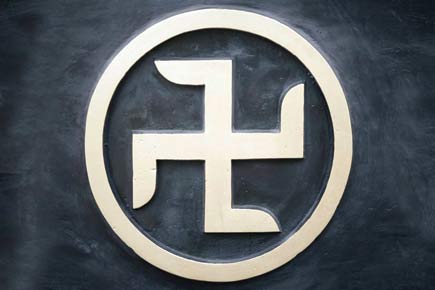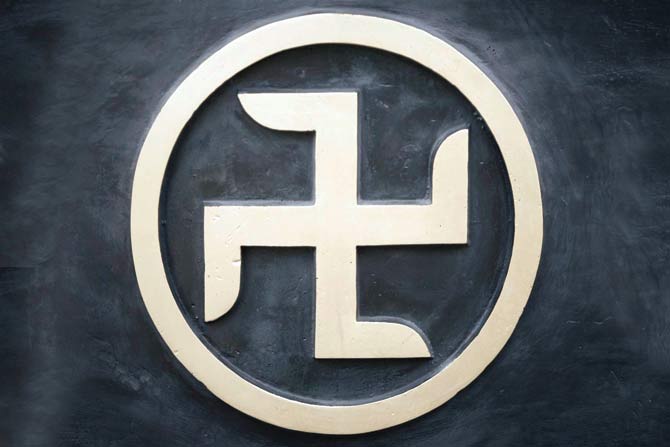Foreign tourists often mistake the traditional Buddhist symbol with the Nazi swastika

Tokyo: As Japan gears up to host the 2020 Tokyo Olympics and caters to a surging influx of foreign visitors, the country faces a cultural dilemma: Should it stop identifying Buddhist temples on maps with the traditional “manji” symbol that is often confused with a Nazi swastika?

Manji symbol. PIC/Thinkstock
The symbol, from ancient Sanskrit, means happiness and prosperity. But many Western tourists associate it with anti-Semitism and the Holocaust because the emblem was adopted by Nazi Germany.
The swastika in Japan— which usually points counter-clockwise, the reverse of the Nazi symbol — has been used for centuries in Buddhist decorations and to denote Buddhist temples on maps.
In a report released last month, a government proposed a three-tiered pagoda symbol to replace the swastika. It is one of 18 suggested icons for landmarks part of a broader push to create user-friendly maps for the growing number of foreign tourists. A final decision is expected in late March following a period of seeking public comment.
However, Japan’s main Buddhist group is nonchalant because the change doesn’t affect domestic maps and therefore won’t alter perceptions at home.
 Subscribe today by clicking the link and stay updated with the latest news!" Click here!
Subscribe today by clicking the link and stay updated with the latest news!" Click here!









